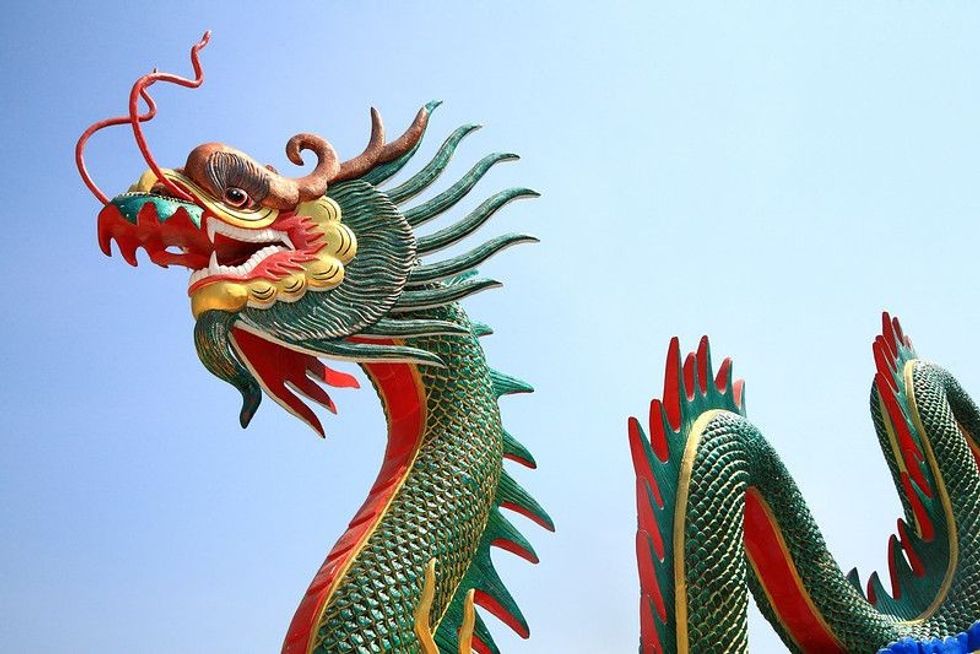Naming has always been an important part of Chinese culture.
Chinese names are unique and creative, as there can be unlimited combinations of thousands of Chinese characters. Chinese pinyin characters can be classified by the number of strokes required to draw them, and the number of strokes determines whether the character is yin or yang.
Yin means an even number of strokes, and Yan means an odd number of strokes. Chinese names should have a balance between Yin and Yang.
Each Chinese name is individually created by the family. Unlike Western names, Chinese names write their given names in reverse, with the last name ahead. The reason Chinese people write last names first is to respect their ancestors.
Chinese last names represent the lineage of Chinese people. Chinese names consist of two syllables from the Chinese alphabet. Many Chinese names are gender-neutral and reflect common objects or feelings like house, ocean, sound, million, and hope. In Chinese culture, naming is considered an art form.
Some of the famous and popular names in China are Míng, Lin, Liu, Lee, Dong, Hong, Xiu, Fang, and Ying, amongst several others. Most parents choose Chinese characters with meanings.
Read on for some of the popular names in China used by various famous people in China.
Most Common Chinese Last Names
1. Wang (王) – meaning ‘king’; Wáng used to be a royal surname and is the most common last name in mainland China now. Wáng is an extremely famous given name.
2. Yang (杨) – meaning ‘tree’, was a royal surname during the Zhou dynasty. One of the popular family names in China.
3. Li (李) – meaning ‘plum’, was a royal surname used during the Tang dynasty. A popular Chinese name.
4. Zhang (张) – meaning ‘archer’; Zhāng was given to the grandson of legendary Chinese emperor Huang Di, who invented bows and arrows. Zhāng is often a popular person name in China.
5. Liu (刘) – meaning ‘death’. Liú was the family name of the Han dynasty emperors. One of the popular family names in China.
6. Chen (陈), meaning ‘old and antiquated’; Chén descends from the legendary Emperor Shun from 2200 BC. One of the usually prevalent names in China.
7. Zhou (周), meaning ‘complete’ or ‘week’, descends from the Zhou dynasty. A highly preferred name for people in China.
8. Wu (吴), meaning ‘our’, originated from the ancient state of Wu, which existed in the 11th century BC.
9. Huang(黄), meaning ‘yellow’, can be spelled in seven different ways in Chinese. Amongst the most popular names for Chinese people.
10. Zhao (赵), meaning ‘to recruit’, was a name of a feudal state during the Zhou dynasty. One of the in China.
Most Common Chinese Female Names
11. Ai (愛), meaning ‘love and affection’, is a Chinese and Japanese feminine name. Amongst the top in the country.
12. Ju (菊), meaning ‘chrysanthemum’, pronounced as zhu, is the most common Chinese female name. A name that reflects a friendly character.
13. Fen (芬), meaning ‘aroma’, is a quite popular Chinese name. One of the usually popular names in China that has a rich character.
14. Hua (花), meaning ‘flower’, also has a male variant with the same characters. One of the top surnames in China.
15. Juan (娟), meaning ‘beautiful’, is a top 10 name in China, adding charm to a person’s elegant personality.
16. Lan (蘭), meaning ‘orchid’, is an elegant Chinese and Vietnamese female name.
17. Mei (梅), meaning ‘Chinese plum’, is pronounced as may and is a feminine name used for different women.
18. Na (梅), meaning ‘elegant’, is an elegant female name pronounced as nah. One of the popular names in China
19. Su (素), meaning ‘simple’, is a common Chinese female name full of life.
20. Yu (玉), meaning ‘jade’ or ‘precious stone’, is the most common Chinese and Korean female name.
21. Kun (坤), meaning ‘earth’, is pronounced as ‘kwun’.
22. Zhen (珍), meaning ‘precious’, is a female name used for children.

Most Common Chinese Male Names
23. Xiang (翔), meaning ‘glide’ or ‘good luck’, is a male name that also refers to the Xiang River in southern China.
24. Wu (翔), meaning ‘military’, was the name of several Chinese emperors.
25. Tai (太), meaning ‘extreme’, is a masculine name in China used for male children.
26. Ru (儒), meaning ‘scholar’, is a famous male name in China.
27. Tao (涛), meaning ‘large waves’, was the name of many Chinese emperors in 2000 BC.
28. Hu (涛), meaning ‘tiger’, is a common male name for a newborn child.
29. Wei (威), meaning ‘power’; Wěi is a male Chinese name pronounced as ‘way’ by parents.
30. Min (敏), meaning ‘clever’, is a Chinese and Korean name. It is a popular male name and has different meanings when used for different children.
31. Jun (敏), meaning ‘king’ or ‘ruler’, is a Chinese and Korean male name. One of the beautiful names is related to the local tradition and culture of China.
32. Zhihao (敏), meaning ‘heroic’, is pronounced as chee-khow and is preferred for a newborn male child.
Common Chinese Family Names In Mythology And Fiction
33. Bixia (碧霞) is a Chinese ‘Goddess of fertility ’ who is also believed to be the protector of mothers and young children.
34. Xihe (羲和) is the Chinese ‘sun goddess’, one of the two wives of Di Jun. It is China’s one of the popular name.
35. Change (嫦娥) is the Chinese ‘moon goddess’, one of the two wives of Di Jun. It is one of the common surnames.
36. Di Jun (帝俊) is an ‘ancient Chinese emperor’ who married both the sun and moon goddesses.
37. Caishen (財神) is the Chinese ‘God of wealth’, who rode a black tiger and carried a golden cudgel that could turn iron into gold.
38. Dianmu (電母) is the Chinese ‘Goddess of lightning’, who married the thunder God. It is one of the rare surnames.
39. Guanyin (觀音) is the Chinese ‘Goddess of mercy’, who is well known for her benevolence and compassion.
40. Ji Gong (濟公) is the legendary Chinese ‘folk hero’ who was also a monk. His devotion granted him supernatural powers. A popular national surname that many families like to adopt.
41. Cangjie (倉頡) is the legendary Chinese ‘cultural hero’, who is depicted with four eyes which help him to see the world differently.
42. Longwang (龍王), also known as ‘Dragon king’, is the fierce Chinese guardian deity. Wáng is also one of the popular names in China.
43. Jiutian Xuannu (九天玄女) is the Chinese ‘Goddess of war and longevity’, well known for her ability to become invisible. A popular example of a full name.
44. The Ba Xian (八仙), also known as ‘the eight immortals’, are a group of legendary Chinese heroes who fight and destroy evil.
45. Lee Gong (雷公) is the Chinese ‘God of thunder ’ and is the most fearsome and intimidating God in Chinese mythology.
46. Lu Ban (魯班) is the Chinese ‘God of carpentry’ and is the inventor of the saw and shovel. It is believed that his wife invented an umbrella to protect him while working in poor weather.
47. Mazu (媽祖) is the Chinese ‘Goddess of the sea’ and is well known for her protective nature over sailors and fishermen.
48. Nuwa (女媧) is the Chinese ‘Goddess of fertility and marriage’ and is the sibling and wife of Fuxi. It is believed that they received a sign from God to marry and repopulate Earth.
49. Nezha (哪吒) is a Chinese ‘protection deity’ who protects teenagers.
50. Shennong (神農) is considered the ‘founder of agriculture’ and ‘father of medicine, who invented the ax and the well.
51. Nuba (女魃) is the Chinese ‘Goddess of drought’ and is a deity not welcomed by humanity.
52. Pangu (盤古) is an ancient Chinese deity who is considered ‘the creator of the world’. It is said that Pangu separated Yin and Yang with his ax and held them apart for many years, which was turned into Earth and Sky.
53. Zao Jun (灶君) is the Chinese ‘God of stove’, who watches home and family.
Sources
https://en.wikipedia.org/wiki/Chinese_name













